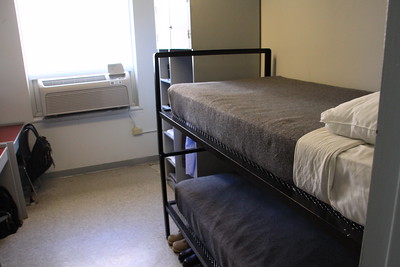WCC Master Plan includes a “hotel and conference center.” Alternately, the plan describes the “hotel” as “student housing.” Honestly, I don’t know what the demand for student housing is. Nonetheless, the-middle-of-a-pandemic is really not the time to measure it. But an interesting solution for community college housing emerged from Pennsylvania.
Pennsylvania has been wrestling with an enormous, pandemic-induced higher education funding problem that affects all of the state’s colleges and universities. It rises to the level of closures and mergers for the state’s higher education system. I’ve written about the system recently.
Indiana University of Pennsylvania (IUP) recently signed a dual-enrollment agreement with Westmoreland County Community College. WCCC is about 40 miles south of Indiana, PA and about 35 miles north-ish of Pittsburgh. The dual-enrollment agreement isn’t new or innovative, but one element of the agreement is. The agreement allows WCCC students to live in IUP dorms while taking IUP classes that count toward a WCCC degree.
Universities clearly fear the coming drop in the 18-22-age population. (Community colleges serve students in a wide age range, so a drop in one demographic won’t impact them like universities.) Universities have made a huge investment in new and rehabilitated student housing. And whether the students show up or not, that university student housing isn’t going away.
If WCC is convinced that it needs to provide housing for its students, shifting demographics represent a potential opportunity. WCC can potentially negotiate access to university housing without building (or caring for) a building. Further, it could negotiate access to housing for the summer training programs – again without having to borrow, build or buy anything.
Community college housing shouldn’t be excuse to build
If WCC wants to support its students, this is perfect, cost-effective win for everyone. If WCC’s administration wants plant a hotel on campus for some other reason, taxpayers need to examine their rationale very, very carefully.
The notion that a hotel is really the same thing as student housing or senior housing is nonsense. Further, if WCC’s “Plan B” for its failing hotel is converting it to community college housing, that demands further inspection. If universities and colleges will compete for a limited number of college-age students, that limits the demand for student housing. A failed hotel project cannot be readily or inexpensively converted into a student housing project. In either case, the taxpayers would be stuck with an expensive, unnecessary building.
Before the WCC Board of Trustees wastes one second considering a half-baked hotel plan, it needs to examine the substantial weaknesses in the project’s Plan B. It also needs to think hard about committing taxpayer resources to a foolish plan and unnecessary project.
Photo Credit: Steve Bozak




























